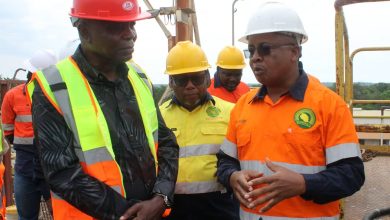From dry wells to safe water: Mwanza’s plan to connect more villages by 2025

MWANZA: THERE is a saying, “Water is life,” which is commonly used by many to emphasise the importance of this essential resource for the well-being of human life.
However, this phrase seems less impactful, especially when there are shortages of water at wells or taps, leading communities, particularly women to struggle in search of water.
Such water shortages in urban areas or dry wells in rural regions highlight the vital role of water in the society. Water is also crucial for global economic and social development, whereby it is used in industries, hospitals, schools, households and various operational systems worldwide.
Despite water’s significance, there remains an imbalance in its distribution due to seasonal variations and access challenges. Furthermore, water resources have been depleting over time due to increasing demand.
Over the past 30 years, the demand for water has grown significantly due to population growth, irrigation, industrial production, mining, livestock farming and other essential uses.
The National Water Policy of 2002 explicitly states that the current water resource management and usage system does not adequately address the demands for water accessibility. According to the policy, 90 per cent of urban residents have access to water services, while only 60-75 per cent of rural residents have access to water.
That trend shows the need to enhance water services, especially as the country moves toward an industrial economy. In response to that, the Rural Water Supply and Sanitation Agency (RUWASA) in Mwanza region has implemented scientific strategies to improve access to clean and safe drinking water in rural areas.
The Mwanza RUWASA Regional Manager, Engineer Godfrey Sanga, recently in Mwanza city was interviewed by the Daily News about plans to enhance rural water services.
He said that as of September 2024, the water supply coverage in Mwanza’s urban areas is 86 percent, while rural coverage is 71.6 percent.

He said according to data from September 2024, 70 percent of Mwanza region’s 3,332,095 residents living in rural areas, approximately 2,305,098 people have access to clean and safe water services. He said Mwanza region serves 544 villages, and by September 2024, 514 villages were expected to have access to clean and safe water.
He said among those, 251 villages will be connected to piped water networks and 229 deep and shallow wells with hand pumps will have been constructed with only 34 villages remaining without water services.
He said efforts to reach these villages are ongoing through a special program of drilling five wells in each constituency and is expected to be completed in the 2024/25 financial year. Project implementation Engineer Sanga said RUWASA in Mwanza region has allocated a total of 20.9bn/- for 56 new and ongoing rural water projects.
He said by December last year, the region had received 3.4bn/- to settle contractor debts for rural water projects. Additionally, he said RUWASA plans to implement nine water projects in five districts of Mwanza region at a cost of 118,364,685,244/95.
He said those projects which were announced in the 2024/25 fiscal year, will cover Kwimba (three projects), Magu and Misungwi (one project each) and Sengerema and Ukerewe (four projects each). He mentioned other projects as four projects in Kwimba and Magu districts valued at 1.42bn/- have already been completed and signed off, with contractors commencing work.
He said five water project contracts worth 1.3bn/- are nearing completion in Misungwi, Sengerema and Ukerewe districts.
ALSO READ: Revisit of Tanzania tourism development
He said the completion of those projects will enable RUWASA to provide water services to 905,091 residents, which is equal to 14.4 per cent of rural Mwanza’s population which is an increase in rural water coverage from 71.6 per cent to 86 per cent by December this year.
Budget allocation Engineer Sanga further said the government, through the Ministry of Water, allocated 2.4 bn/- in the 2023/24 budget for drilling 40 wells in eight constituencies in Mwanza region.
He said the program aims to bring water services to villages that have never had access to clean and safe water and so far, 1.9bn/- has been received in Mwanza, with 1.5bn/- used for groundwater research, drilling and water quality testing.
He said the ongoing program to drill five wells in each constituency is expected to be completed in the 2024/25 fiscal year.
Engineer Sanga noted that water service improvement is being implemented under the Water Sector Development Program Phase II, which has increased rural water accessibility from 19 percent in 2019 to 71.6 percent in 2023, which is equal to 2.6 percent annual increase.
“My appeal to citizens is to safeguard the infrastructure of water projects already providing services, as their construction involves significant costs,” he said.
Speaking to the Daily News over the phone from Ukerewe, Ukerewe District CCM Chairman Mr Ally Mambile highlighted five major water projects in the district which are at various stages of implementation.
“If all these projects are completed, they will significantly address the challenge of access to clean and safe water,” he said.





